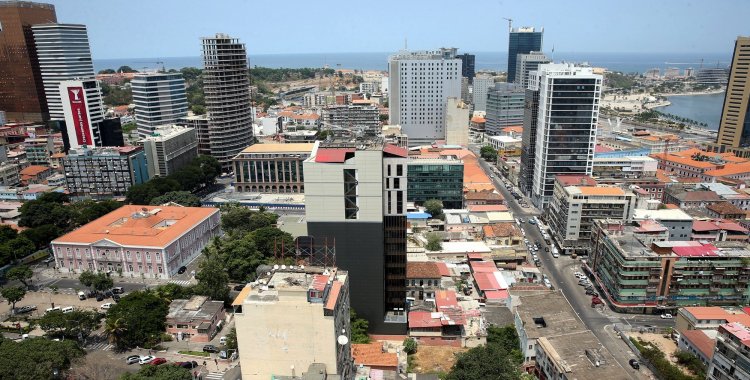"Fitch estimates that real growth in Angola's Gross Domestic Product (GDP) has accelerated from 0.7 percent in 2021 to 3.1 percent in 2022, mainly due to the robust performance of the non-oil economy, but also due to the return to positive growth in the oil sector; we forecast economic growth to slow to 2.7 percent this year and 2.5 percent next, mainly due to a decline in production," says Fitch Ratings.
In the note that accompanies the announcement of the decision to maintain the rating at B- and improve the prospect of evolution to positive, Fitch analysts write that "activity in sectors other than oil should remain robust, reflecting government spending on efforts of diversification and the reduction of pressures on inflation".
Fitch estimates that inflation has dropped from 28.8 percent in 2021 to 22.2 percent last year, "sustained by an appreciation of the kwanza and the strengthening of the weight of food in the basic basket (to 55 percent), and is expected to slow further to an average of 14 percent in 2023 and 11 percent next year."
The drop in oil prices compared to the values recorded last year, influenced by the impacts of the war in Ukraine, should make the current account turn negative, with values of -0.8 percent and -1 percent in 2023 and 2024, when last year it had a surplus of 1.7 percent.
"This is due to the decline in Government revenue to 21.1 percent of GDP in 2023 and 19.3 percent in 2024, which compares with the estimate of 23.6 percent in 2022, the highest level since 2015, with oil prices falling from 100 dollars per barrel last year to 85 and 65 dollars this year and next", write the analysts.
Public debt, on the other hand, is expected to continue the downward path it started in 2021, rising from 77.4 percent in that year to 60.3 percent last year and 54.4 percent next year.
"The fall in the debt-to-GDP ratio in 2022 was mainly driven by the substantial appreciation of the kwanza, and we expect that the further decline until 2024 will be sustained by strong nominal GDP growth and a primary budget surplus", that is, a positive balance public accounts before calculating the interest on the debt.
Despite the improvement, the risks persist, analysts warn, noting that "the average maturity of the external debt increased to 10 years at the end of 2021, when in 2018 it was five years", which means that interest will have to be paid during longer, and about 80 percent of the debt is external, to which is added the fact that "interest rates are high relative to their peers, with the revenue-to-debt ratio standing at 17 percent in 2022, well above average" of Fitch rated B countries that use 11.5 percent of their revenues to service debt.
With regard to the Government's capacity to implement public policies, Fitch considers that the victory of the Popular Movement for the Liberation of Angola (MPLA) in August last year guarantees continuity, and they do not expect governance difficulties.
"The majority achieved by the MPLA and the peaceful return to parliamentary activity should guarantee political stability in the coming years", write the analysts, concluding that "although budgetary consolidation may become more challenging with the growth of social pressures after five years of recession, policy changes are not expected by the new government".
Fitch Ratings on Friday upgraded the outlook for Angola's rating to positive, maintaining its opinion on sovereign credit quality at B-, below the investment recommendation.
"The prospect of positive evolution reflects the recent sharp drop in public debt, large current account surpluses and lower financing risks, supported by a more favorable oil environment", reads the note that accompanies the decision to maintain the rating at B-, two levels below the investment recommendation, ie 'trash', or 'junk' as it is generally referred to.
Maintaining the rating at this level "balances the significant structural weakness, namely the poor performance in governance and human indicators, high inflation and one of the highest levels of dependence on raw materials among the countries analyzed by Fitch, with the decrease in the ratio of public debt over GDP, higher international reserves compared to its peers and improved macroeconomic stability", add the analysts.







